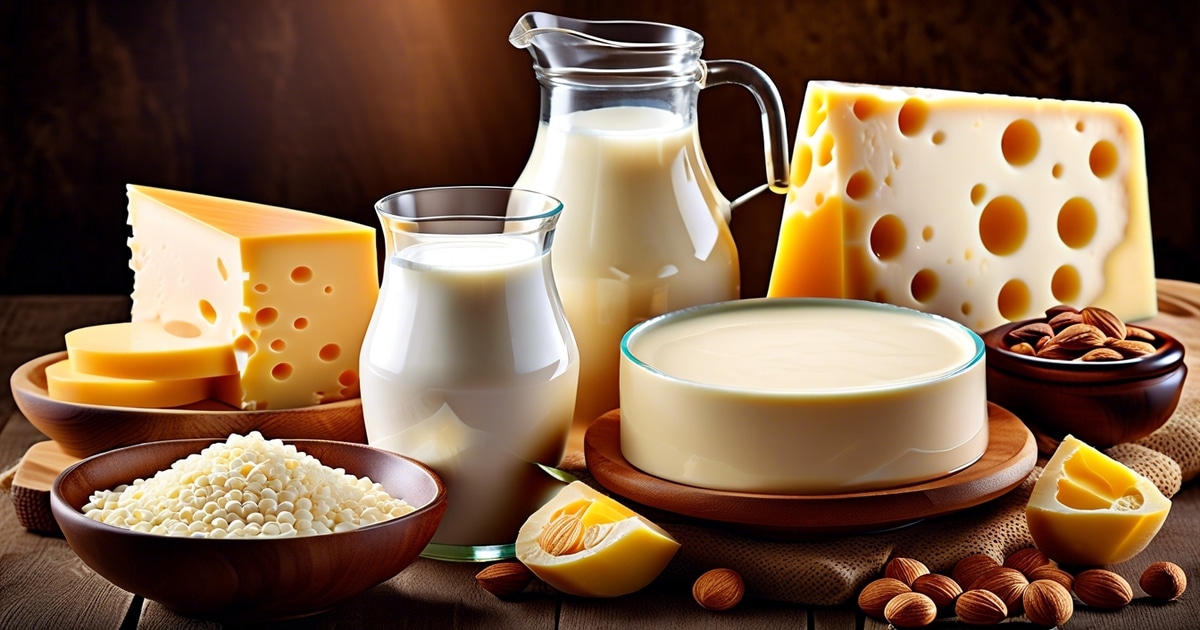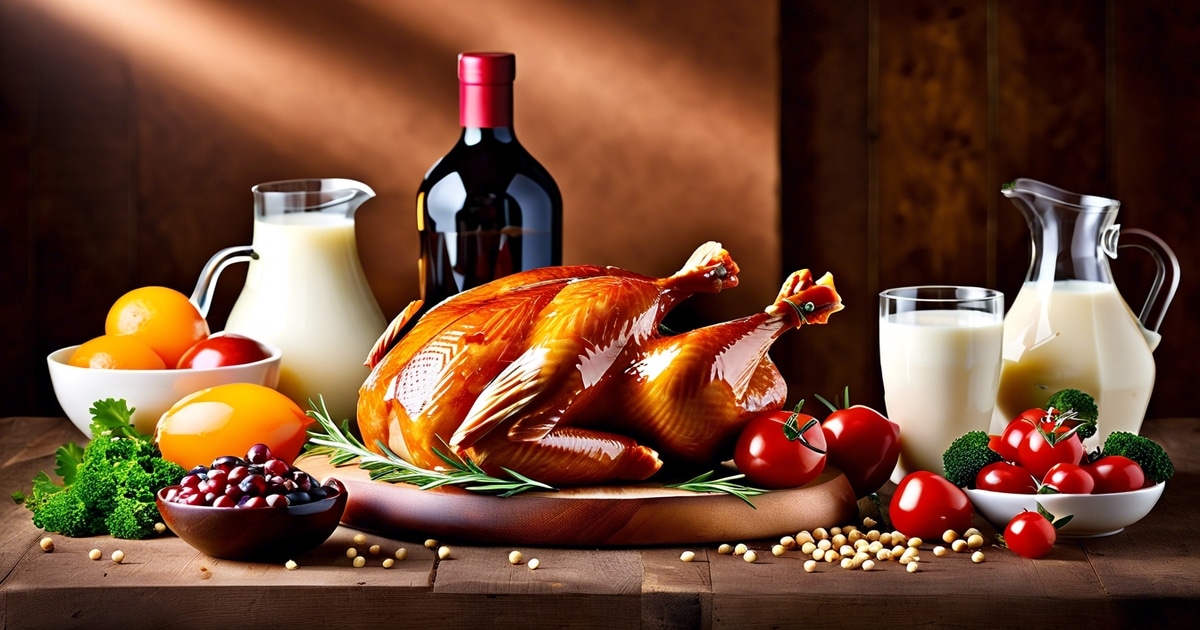Key Takeaways
-
Incorporate acetyl–L-carnitine-rich animal products: Include red meat, fish, poultry, and dairy in your diet to boost acetyl-L-carnitine levels.
-
Support brain function: Acetyl-L-carnitine plays a vital role in brain health by enhancing cognitive function and potentially reducing age-related cognitive decline.
-
Promote heart health: L-carnitine, a nutritional supplement, can support heart health by improving cardiac function and reducing the risk of heart-related issues.
-
Enhance exercise performance: Consuming L-carnitine supplements or foods can help improve exercise performance by increasing energy production and reducing fatigue.
-
Aid in weight loss: Acetyl-L-carnitine may assist in weight loss by promoting fat metabolism and energy production.
-
Manage type 2 diabetes and depression: L-Carnitine has shown potential benefits in managing type 2 diabetes by improving insulin sensitivity and in alleviating symptoms of depression.
Have you ever wondered where to find natural sources of acetyl-l-carnitine? Are you curious about boosting your intake through everyday foods? Dive into this post for a deep dive into acetyl-l-carnitine food sources. From poultry and dairy to certain fruits, we’ve got you covered with practical tips on effortlessly incorporating this essential nutrient into your diet. Ready to elevate your nutrition game and reap the benefits of acetyl-l-carnitine from common edibles and clinical trials? Let’s explore how simple dietary choices can significantly impact your well-being.
Natural Food Sources of Acetyl-L-Carnitine
Red Meat
Beef and lamb are excellent food sources of acetyl-L-carnitine, making them a great choice for individuals looking to increase their intake. Red meats like beef and lamb can easily be incorporated into various dishes, providing a tasty way to consume this essential nutrient.
-
Pros:
-
Rich source of acetyl-L-carnitine
-
Versatile ingredient for cooking
-
Dairy Products
Milk and cheese are known for containing significant amounts of acetyl-L-carnitine. These sources offer a convenient way to boost your intake of this important compound without much effort. Adding dairy products like milk or cheese to your daily meals can help ensure you get enough acetyl-L-carnitine.
-
Cons:
-
High in saturated fats (in some cases)
-
Fish
Cod and haddock are among the fish varieties that provide a good dietary source of acetyl-L-carnitine. Including these types of fish in your diet can enhance your intake of omega-3 fatty acids and also contribute to meeting your body’s needs for acetyl-L-carnitine.
Role of Acetyl-L-Carnitine in Brain Function
Supporting Brain Energy Metabolism
Acetyl-L-carnitine, found in various foods like red meat and dairy products, plays a vital role in brain function. It is essential for powering brain energy metabolism, ensuring that the brain has the fuel it needs to function optimally. This amino acid derivative, free carnitine, helps convert fat into energy the brain can use efficiently.
Acetyl-L-carnitine also contributes to enhancing neurotransmitter production in the brain. By facilitating this process, it promotes optimal cognitive function, improving memory and focus. Consuming foods rich in acetyl-L-carnitine can aid individuals in maintaining healthy brain activity throughout their lives.
Protection Against Oxidative Stress
Moreover, acetyl-L-carnitine serves as a shield for brain cells against oxidative stress and age-related decline. As we age or encounter environmental factors that cause oxidative damage to our cells, having adequate levels of acetyl-L-carnitine from sources like avocado or asparagus becomes crucial for preserving cognitive health. By combating these harmful effects on the brain cells, acetyl-L-carnitine supports long-term mental well-being.
-
Pros:
-
Enhances neurotransmitter production
-
Protects against oxidative stress
-
-
Cons:
-
It may have mild side effects like nausea when consumed excessively
-
Benefits of L-Carnitine in Supporting Heart Health
Importance of L-Carnitine for Heart Health
L-carnitine, found in various food sources, supports heart health. It aids in transporting fatty acids, including carnitine, to the mitochondria, where they are converted into energy for the heart muscles. This process is essential for maintaining optimal heart function.
Consuming acetyl-l-carnitine through food or supplements can have several benefits for heart health. It helps reduce blood pressure levels, lowering the risk of cardiovascular diseases such as heart attacks and strokes. Studies on PubMed have shown that L-carnitine supplementation can improve symptoms in patients with heart failure by enhancing overall cardiac function.
Sources of Acetyl-L-Carnitine-Rich Foods
To incorporate more acetyl-l-carnitine into your diet, consider adding certain foods rich in this compound. Red meat, particularly beef and lamb, is a notable source of acetyl-l-carnitine. Dairy products like cheese and milk also contain significant amounts of this beneficial nutrient.
Including plant-based options like avocados and asparagus can also boost your intake of acetyl-l-carnitine. Nuts such as almonds and cashews are another excellent choice to increase your consumption of this essential compound that supports heart health.
L-Carnitine’s Impact on Exercise Performance
Enhancing Exercise Performance
Acetyl-L-carnitine food sources play a crucial role in improving exercise performance. This compound, carnitine, boosts the body’s ability to use fat as fuel during physical activity, enhancing endurance and delaying fatigue. Studies have shown that carnitine concentrations can reduce muscle damage and speed up recovery after workouts.
L-carnitine supplementation has been linked to improved athletic performance by increasing fat utilization for energy. Athletes taking acetyl-l-carnitine may experience enhanced endurance during prolonged exercise sessions, leading to better physical performance. According to Pubmed, this supplement could help combat muscle weakness and prevent fatigue, allowing patients to push their limits further.
Impact on Muscle Recovery
Athletes and patients can train more frequently by aiding in quicker recovery times without experiencing excessive soreness or fatigue. Moreover, reducing muscle cramps associated with L-carnitine intake can improve overall workout experiences.
-
Boosts fat utilization for energy
-
Reduces muscle damage
-
Improves endurance levels
-
Speeds up post-exercise recovery
Acetyl-L-Carnitine in Weight Loss

Fat Burning and Metabolism Boost
Acetyl-L-carnitine plays a crucial role in weight loss by aiding in fat-burning and boosting metabolism. This compound, carnitine, helps convert stored fat into usable energy during physical activity, promoting the reduction of fat content.
Acetyl-L-carnitine supports the process of fatty acid oxidation, which is essential for utilizing fats as an energy source. By facilitating this process, carnitine contributes to weight loss by increasing the body’s ability to burn fat efficiently.
-
Supports fat burning
-
Boosts metabolism
-
Enhances fatty acid oxidation
Appetite Suppression and Calorie Intake Reduction
Moreover, acetyl-L-carnitine assists in weight loss by suppressing appetite, leading to reduced calorie intake. Individuals may consume fewer calories throughout the day by curbing cravings and promoting satiety.
This compound, carnitine, aids in weight management through its effects on metabolism and positively influencing eating behaviors. It can be particularly beneficial with a balanced diet and regular exercise routine.
-
Suppresses appetite
-
Reduces calorie intake
-
Promotes satiety
L-Carnitine and its Effects on Type 2 Diabetes
Benefits for Type 2 Diabetes
L-carnitine supplementation can benefit individuals with type 2 diabetes by improving insulin sensitivity, reducing blood sugar levels, and enhancing glucose utilization. This nutrient is crucial in preventing diabetic complications by lowering oxidative stress.
Studies have shown that L-carnitine helps improve the body’s response to insulin, making it easier for cells to take sugar from the bloodstream. Doing so aids in regulating blood sugar levels and decreasing the risk of complications associated with diabetes mellitus, such as nerve damage or kidney disease.
-
Improves insulin sensitivity
-
Reduces blood sugar levels
-
Enhances glucose utilization
-
Prevents diabetic complications by reducing oxidative stress
Food Sources of Acetyl-L-Carnitine
While acetyl-l-carnitine is commonly available as a dietary supplement, it can also be obtained through various food sources. Foods rich in this compound include red meat (such as beef and lamb), dairy products (like cheese and whole milk), poultry (especially chicken breast), fish (such as cod and halibut), and nuts (like almonds).
By incorporating these foods into your diet regularly, you can naturally increase your acetyl-l-carnitine intake without relying solely on supplements.
-
Red meat
-
Dairy products
-
Poultry
-
Fish
-
Nuts
The Relationship Between L-Carnitine and Depression
Role in Improving Depression Symptoms
L-Carnitine supplementation has shown promise in alleviating depressive symptoms by regulating neurotransmitter levels like serotonin, crucial for mood balance. By reducing inflammation and oxidative stress, L-Carnitine contributes to enhanced mental well-being.
Studies suggest that individuals with depression often exhibit low levels of L-carnitine, which may impact mitochondrial function and lead to mood disorders. Through its interactions with neurotransmitters, this compound aids in managing depressive symptoms effectively.
-
Pros:
-
Potential improvement in depressive symptoms
-
Regulation of neurotransmitter levels
-
Reduction of inflammation and oxidative stress
-
-
Cons:
-
Limited research on long-term effects
-
Individual responses may vary
-
Dietary Sources Rich in Acetyl-L-Carnitine
Acetyl-L-Carnitine can be obtained from various food sources such as red meat, dairy products, poultry, fish, and certain fruits and vegetables. Ensuring a balanced diet that incorporates these items can help maintain adequate L-carnitine levels for overall health benefits.
Foods like beef, chicken breast, whole milk yogurt, cheddar cheese, codfish, avocados, broccoli, and asparagus, including acetyl-L-carnitine, can provide essential nutrients.
Incorporating L-Carnitine-Rich Foods into Your Diet

Lean Cuts of Red Meat
Lean cuts of red meat like sirloin steak or ground beef are excellent food sources of L-carnitine. These meats provide a substantial amount of this essential nutrient that aids energy production.
Including lean red meat in your diet can help boost your L-carnitine intake, supporting overall health and well-being. Moreover, it’s a delicious way to meet your nutritional needs.
Dairy Products
Dairy products such as yogurt and cottage cheese are also great food sources of L-carnitine. These items not only offer protein but also contribute to meeting your daily requirements for this important nutrient.
Adding dairy products to your meals can enhance the flavor while ensuring you get a good L-carnitine dose. They make for versatile options that can be enjoyed anytime during the day.
Fish
Incorporating fish like salmon or tuna into your weekly meal plan is another effective way to naturally introduce more L-carnitine into your diet. Fish serves as an excellent alternative source compared to animal-based products.
Final Remarks
You’ve just explored the diverse world of acetyl-L-carnitine, delving into its impact on brain function, heart health, exercise performance, weight loss, diabetes, and depression. By incorporating L-carnitine-rich foods into your diet, you can enhance various aspects of your well-being. Remember, small changes can lead to significant outcomes over time. So why not add some of these foods to your next grocery list?
Incorporating acetyl-L-carnitine sources into your meals might be the missing piece in your quest for a healthier lifestyle. Take charge of your health journey today and see how these natural sources can make a difference in how you feel and function daily.
Frequently Asked Questions
What are some natural food sources of Acetyl-L-Carnitine?
Acetyl-L-Carnitine can be found in foods like red meat, dairy products, poultry, fish, and certain fruits and vegetables. Incorporating these into your diet can help boost your intake of this essential nutrient.
How does Acetyl-L-Carnitine impact brain function?
Acetyl-L-Carnitine is vital in supporting brain health by producing energy and neurotransmitters. It helps enhance cognitive function, memory retention, and overall mental clarity.
Can L-carnitine benefit heart health?
Yes, L-carnitine supports heart health by improving energy production in heart muscles. It aids in transporting fatty acids to mitochondria for energy production, crucial for maintaining cardiovascular function.
How does L-carnitine affect exercise performance?
L-carnitine helps improve exercise performance by enhancing fat utilization for energy during physical activity. This increases endurance levels and reduces muscle fatigue during workouts or training sessions.
Is there a link between acetyl-L-cararnitine and weight loss?
Acetyl-L-Carnitine may aid in weight loss by promoting fat metabolism and increasing energy levels. Combining with a balanced diet and regular exercise regimen can support healthy weight management goals.

